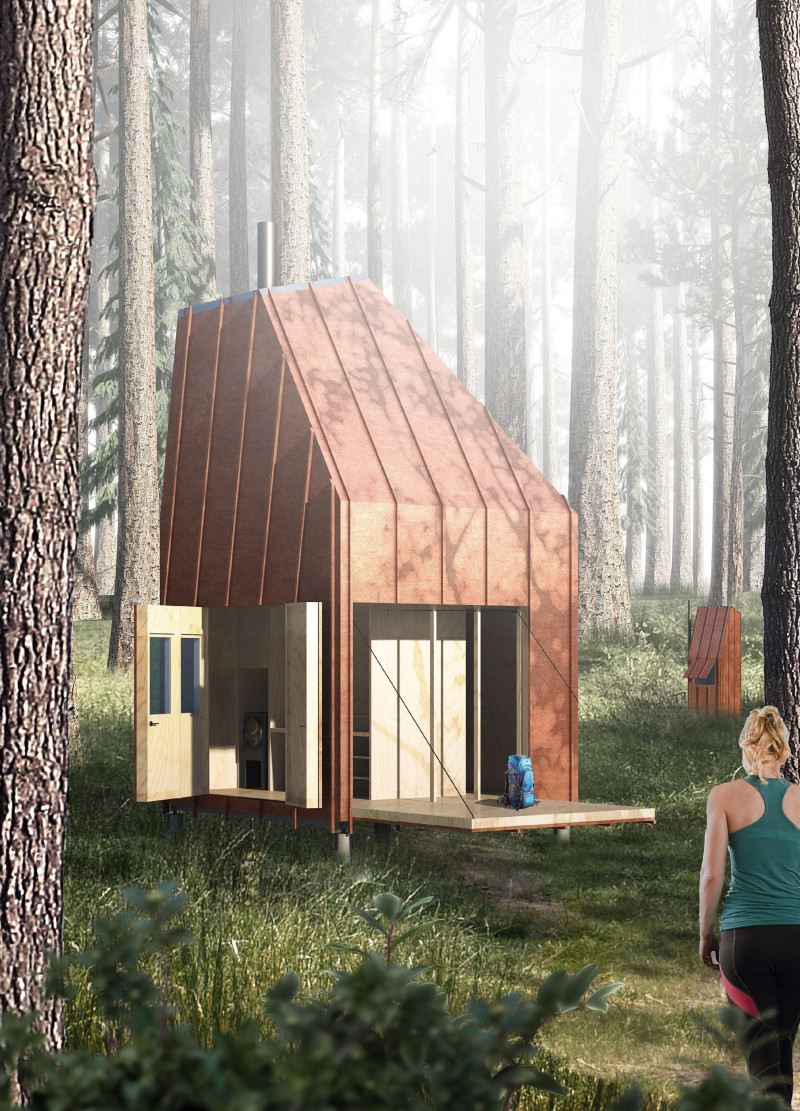5 key facts about this project
The Silent Meditation Forest Cabins are located between Lake Bezdibene and the Ozolini buildings. They aim to provide spaces for exploration, solitude, and reflection. The design focuses on creating an environment that enhances internal balance in a world that often feels overwhelming. Each cabin is carefully positioned to encourage engagement with the natural surroundings while providing a peaceful retreat for meditation and contemplation.
Architectural Concept
At the heart of the design is the idea of connecting the built environment with nature. The cabins invite occupants to explore their surroundings, allowing for moments of introspection. The layout of each cabin offers a range of experiences, where users can choose between complete exposure to nature or a more secluded setting. This flexibility adds to the overall comfort and appeal of the space.
Structural Configuration
A central core forms the backbone of the design, accommodating essential functions such as sleeping, cooking, and creating. Above this core is a sky-lit platform dedicated to meditation. The multifunctional nature of the core supports various activities, emphasizing the importance of mindfulness and tranquility in this setting.
Materiality and Environmental Integration
The materials chosen for the cabins reflect a commitment to sustainability. Plywood and timber are used, which offer effective maintenance while also minimizing environmental impact. By selecting these accessible materials, the cabins blend with the landscape. This choice reinforces the bond between human-made structures and the natural world.
Spatial Interaction
Operable walls and windows give each cabin a dynamic quality, allowing for a transition between indoor and outdoor spaces. These features enable natural light and airflow to enter, enhancing the comfort of the interiors. The thoughtful design encourages a close relationship with nature, underscoring the key ideas of serenity and self-discovery.
The meditation platform, situated above the core, provides unobstructed views of the sky. This creates an ideal setting for quiet reflection amid the calming presence of the forest.


























